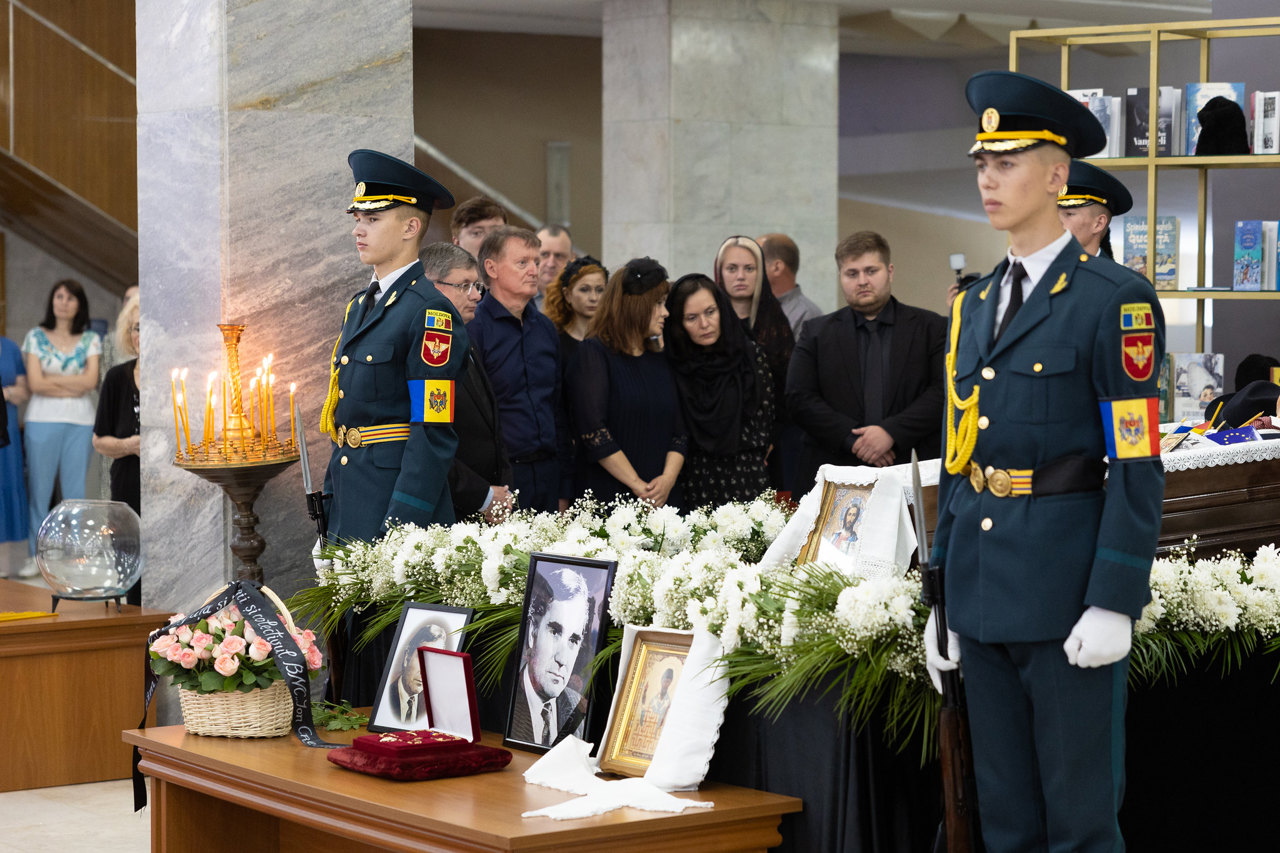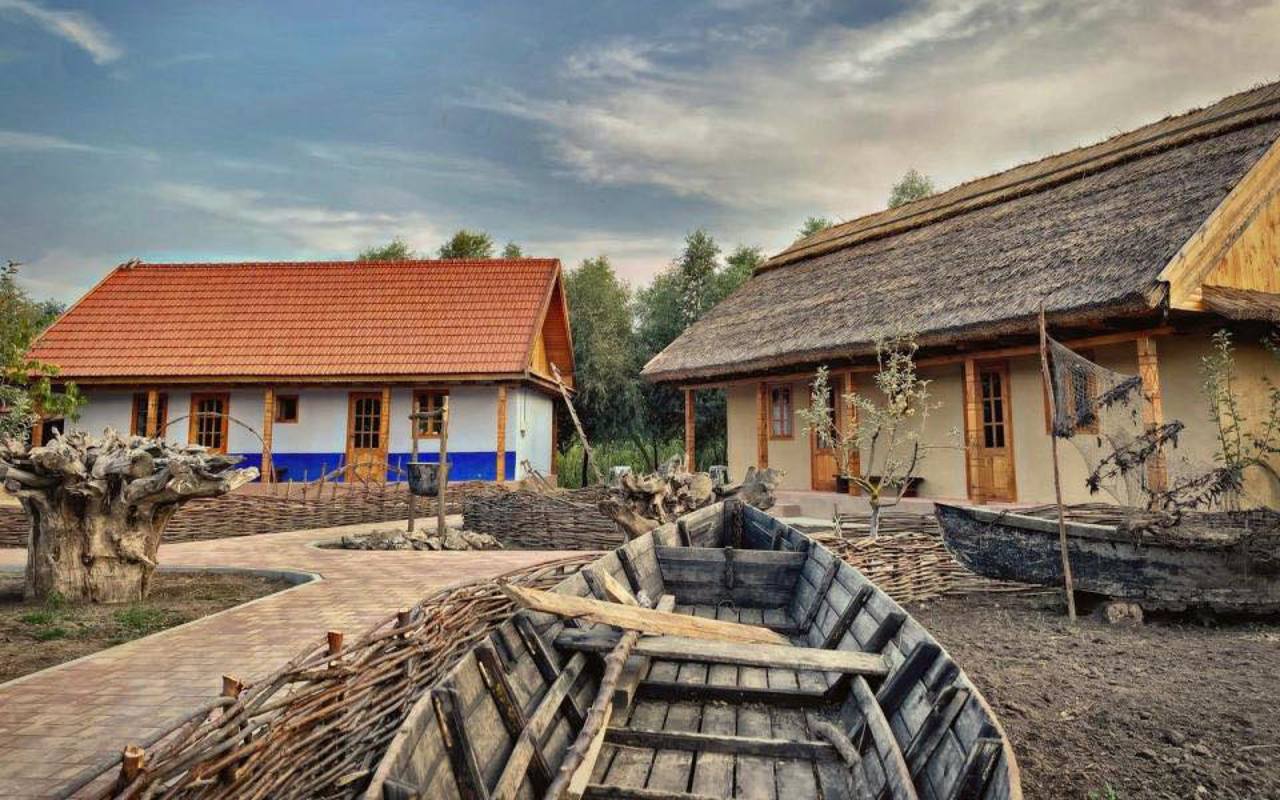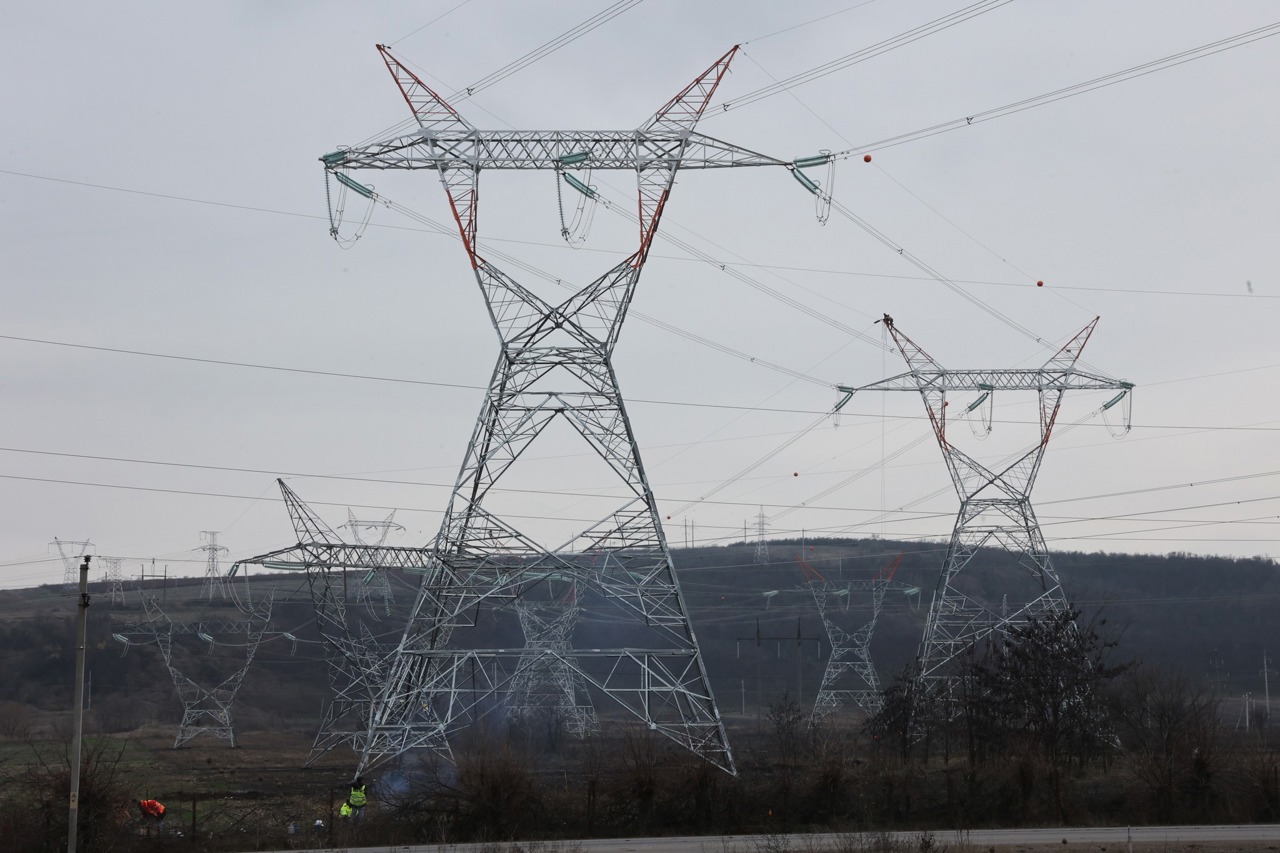Moldova Mourns Beloved Children's Author Spiridon Vangheli
Moldovan author Spiridon Vangheli, whose works have inspired and delighted generations of readers, died on Friday, June 21st.

A beloved figure in his home country, Vangheli was affectionately nicknamed "Guguță's Father" after his popular children's book series. A large crowd gathered today, June 24th, at the National Palace "Nicolae Sulac" to pay their respects, including family members, fellow writers, devoted readers, and government officials. The writer's body laid in state at the palace before the funeral procession made its way to the Central Cemetery on Armenească Street for his final resting place.
Vangheli's enduring legacy was a key theme throughout the day. Speakers lauded his immense contribution to Moldovan literature, particularly in the realm of children's books. Many fondly recalled his well-worn classics, cherished by generations and a constant presence in libraries despite constant wear and tear. Ala Dabija, director of the "Mihai Eminescu" Academic Center, remarked, "Spiridon Vangheli's books are timeless in the truest sense. They are constantly read, repaired with love, and libraries simply cannot keep up with demand. His spirit and his stories will forever hold a place in our hearts."
Eugenia Dabija, director of the "Ion Creangă" Children's Library, echoed this sentiment, highlighting Vangheli's international recognition. "He leaves behind a legacy worthy of our utmost respect. Vangheli stands as a true cultural ambassador, his works translated into over 60 languages and capturing the universal essence of childhood in a way that rivals the greatest names in world literature."
Vangheli's impact transcended the literary world. Writer Iulian Filip spoke of his profound influence, alongside fellow author Grigore Vieru, on shaping the landscape of Moldovan children's literature. "Vangheli and Vieru truly revolutionised the genre," Filip stated. "While others wrote for children before them, their dedication and innovative approach have left an indelible mark on generations of young readers."
Academician Mihai Cimpoi further emphasised Vangheli's international acclaim. "It's true that recognition often comes first from abroad," he observed. "This was certainly the case with Spiridon Vangheli, who was awarded the prestigious Hans Christian Andersen International Honorary Diploma."
Moldovan dignitaries, including President Maia Sandu, Speaker of Parliament Igor Grosu, and Minister of Culture Sergiu Prodan, also paid their respects. Standing solemnly with bouquets of flowers, they held a moment of silent reflection. President Sandu shared a personal anecdote, relating, "There's a bit of Guguță in all of us. Spiridon Vangheli brought this character to life in a way that resonated deeply, and I, like countless others, have passed his stories on to the next generation. My most recent encounter with Mr. Vangheli was at Bookfest, where he interacted with my youngest daughter for the first time. It was a truly special moment for both of us."
Minister of Culture Prodan pledged continued efforts to promote Vangheli's work internationally. "Spiridon Vangheli is a pillar of Moldovan culture," he declared. "We are committed to ensuring his legacy lives on by facilitating further translations of his works into as many languages as possible. Additionally, we will work to ensure existing translations, some dating back decades, are reissued in their respective countries."
Spiridon Vangheli passed away at the age of 92. Born on June 14, 1932 in the village of Grinăuți, Bălți district, he was a prolific writer, leaving behind a rich legacy that includes prose, poetry, translations, and editorial work. He played a pivotal role in shaping Moldovan children's literature, notably as a co-author of the iconic "Abecedar," a primer first published in 1970 and later republished in Latin script in 1990. Vangheli's numerous accolades include the Order of the Republic and the Mihai Eminescu Medal. In 2012, he was bestowed with the honorary title of Citizen of the Municipality of Chișinău.
Translation by Iurie Tataru



